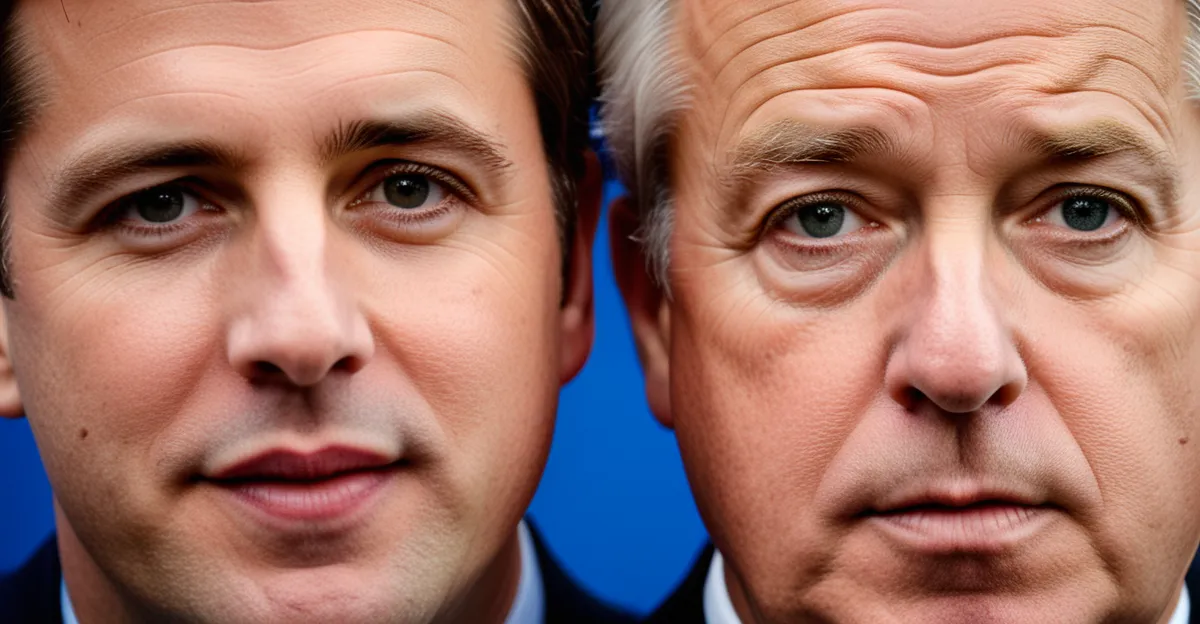Overview of Recent Political Changes in the UK
Recent UK politics has experienced significant shifts since the last general election, marked by notable leadership changes and fresh policy directions. Leadership changes have reshaped party dynamics, with new leaders redefining their stances on key issues to appeal to evolving public concerns. These shifts often provoke reassessments of party policies, affecting voter perceptions and political stability.
Several pieces of new legislation have also surfaced, influencing the UK’s political landscape. For instance, proposed laws address economic recovery strategies, healthcare reforms, and regulatory adjustments post-Brexit. These legislative changes aim to respond directly to citizen needs and international pressures.
Have you seen this : How is the UK media adapting to digital disruption?
Understanding recent UK politics requires looking into how leadership changes intersect with party policies and legislation. Party leaders play a pivotal role in setting agendas, while legislation concretizes policy aims, both contributing to the direction UK politics will take next. Such developments provide an essential context for analyzing the broader political environment, highlighting the dynamic interplay of leadership decisions and legislative initiatives shaping the future.
Overview of Recent Political Changes in the UK
Recent UK politics has experienced significant shifts driven by notable leadership changes and evolving party policies. Since the last general election, several major political events have reshaped the landscape. Key leadership changes within both major parties have introduced new stances, affecting how these parties engage with critical issues such as economic recovery and healthcare reform. For example, the Conservative Party saw a leadership transition that emphasized a stricter approach to fiscal policy, while the Labour Party shifted towards more progressive social policies under its new leadership.
Also read : A better way for kids to master math through fun games
Additionally, recent and proposed legislation has played a crucial role in defining the political climate. New laws targeting economic regulation, environmental standards, and public health are actively influencing debates across party lines. This wave of legislation reflects an intention to respond to public demands and address challenges exacerbated by global economic uncertainty and post-pandemic recovery efforts.
Understanding these recent UK politics developments is essential, as they set the foundation for future political strategies and electoral outcomes. Party leadership changes and legislative initiatives together are molding a dynamic political environment, impacting voter perceptions and party alignments in unprecedented ways.
Impact on Voting Behavior and Public Sentiment
Changes in recent UK politics, including leadership changes and new legislation, significantly affect voting patterns and public opinion UK. Leadership changes often reshape voter trust; for example, a party leader’s stance on economic recovery or healthcare reform can either boost or erode confidence among key demographics. Precise analysis reveals that when voters perceive leaders as responsive to pressing issues, election turnout tends to increase.
Public sentiment reflects shifts on critical topics like Brexit, the economy, and the National Health Service. Polling data indicate fluctuating support levels aligned with how parties adjust their policies. For instance, a party’s new legislation proposals addressing economic stability after Brexit can sway undecided voters by reassuring concerns about financial security.
Understanding these dynamics with precision offers insight into likely voter reactions. Changes in party policies directly influence not only whether constituents feel represented but also their motivation to participate in elections. Experts emphasize that sustained engagement correlates closely with transparent leadership and clear policy direction—both crucial in shaping positive voting patterns and boosting election turnout amid ongoing political shifts.
Overview of Recent Political Changes in the UK
Since the last general election, recent UK politics has been notably shaped by leadership changes that have shifted party priorities and approaches. For example, the Conservative Party’s leadership transition brought a firmer stance on fiscal responsibility, emphasizing budget discipline and economic recovery plans. Meanwhile, Labour’s new leader advanced progressive social policies targeting healthcare expansion and wealth inequality. These shifts in leadership directly influence party policies, steering legislative agendas toward their respective visions.
On the legislative front, several new legislation proposals have emerged aiming to address critical post-Brexit challenges. Key bills focus on economic regulation, environmental protection, and public health reforms—all designed to resonate with voter concerns and global uncertainties. For instance, legislation tightening financial oversight aims to boost market confidence, while healthcare reforms seek to improve NHS efficiency and access.
The interplay between leadership changes and fresh party policies sets a dynamic scene for UK politics. As leaders redefine their parties’ core messages, corresponding new legislation underscores these commitments in tangible terms. This combination not only signals evolving political priorities but also frames the ongoing discourse in Parliament and across the electorate.
Overview of Recent Political Changes in the UK
Since the last general election, recent UK politics have been notably influenced by significant leadership changes that have redefined party policies across the major political groups. The Conservative Party, under its new leadership, has adopted a tighter fiscal approach, prioritizing economic recovery and fiscal discipline. This shift contrasts with Labour’s leadership, which has steered policy toward progressive reforms, particularly in healthcare and social welfare.
Alongside leadership transitions, new legislation has been introduced or proposed to complement these evolving political visions. Key legislative efforts focus on post-Brexit economic regulation, aiming to stabilize markets and restore investor confidence amid global uncertainties. Environmental policy updates and NHS reforms are also prominent, reflecting commitments to public welfare and sustainability.
These leadership changes and legislative initiatives form an interlinked framework shaping the UK’s political direction. They solidify party messages while addressing citizen concerns such as economic security and healthcare quality. By integrating new legislative measures with recalibrated party policies, recent UK politics demonstrates active efforts to adapt to changing public priorities and the complexities of the current political climate.









